-
-
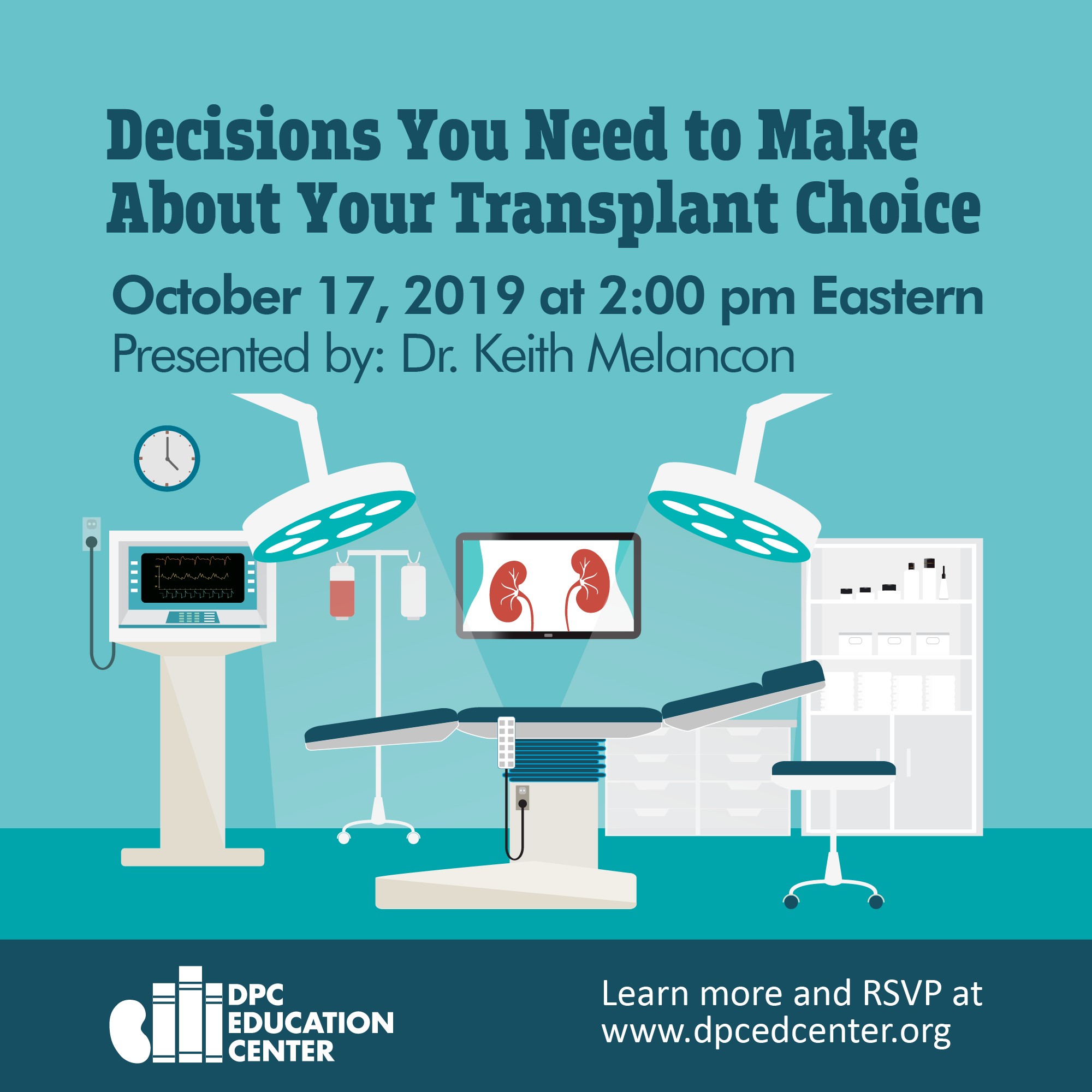
Decisions You Need to Make About Your Transplant Choice
Dr. Melancon will touch on the following three key points: 1) Accepting high risk donors, 2) Understanding transplant wait time and 3) What makes a great transplant recipient.
-
-
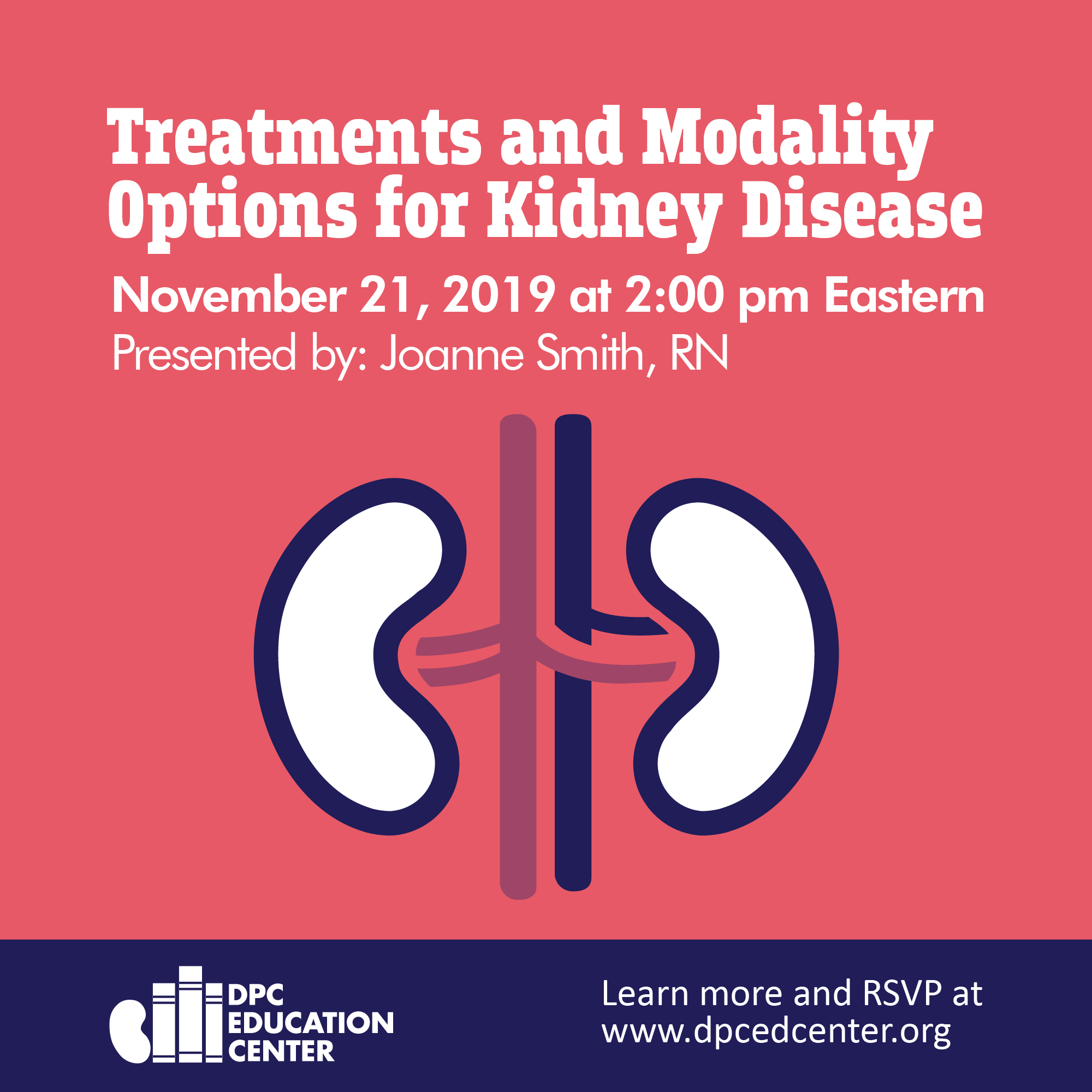
Treatments and Modality Options for Kidney Disease
During this webinar you will learn: 1) how kidneys work, 2) about chronic kidney disease stages and symptoms, 3) how to slow progression, 4) end stage options for treatment and 5) about accesses.
-
-
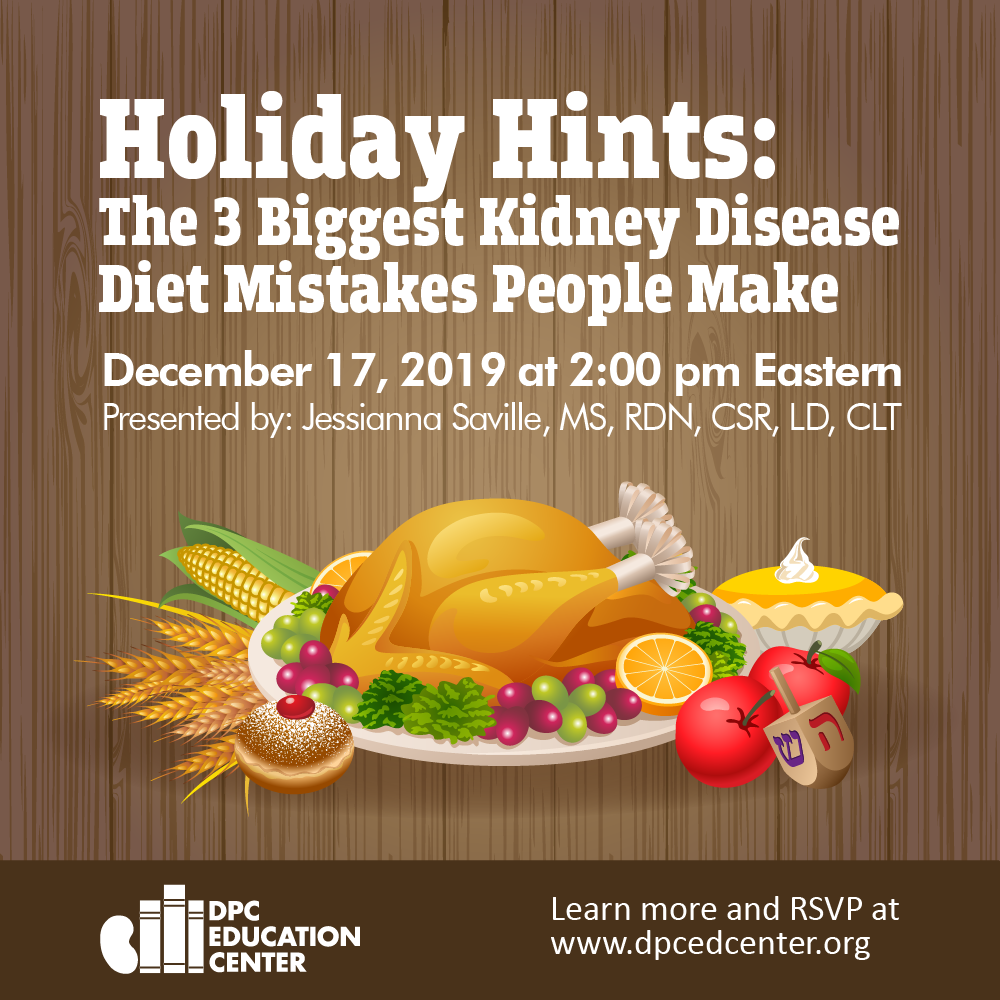
Holiday Hints: The 3 Biggest Kidney Disease Diet Mistakes People Make
Join us for this dynamite webinar to learn the three biggest mistakes people with kidney disease make during the holidays with their diet and how to avoid. We’ll go over our best tips to make your food go from “blah” to “hurrah” and give you all the tools you need for your best holiday tips this season.
-
-

There’s a Grant for That!
Do you have an idea to help others living with kidney disease? Are you interested in going back to school or work? There’s a grant for that. If you’ve never applied for a grant before, don’t worry. With resources to help guide you, it doesn’t have to be overwhelming. The End Stage Renal Disease National Coordinating Center (ESRD NCC) Patient Grant Library has what you need to help find the grant that’s right for you. It also offers links to sources for writing a proposal, creating a budget and submitting an application.
-
-
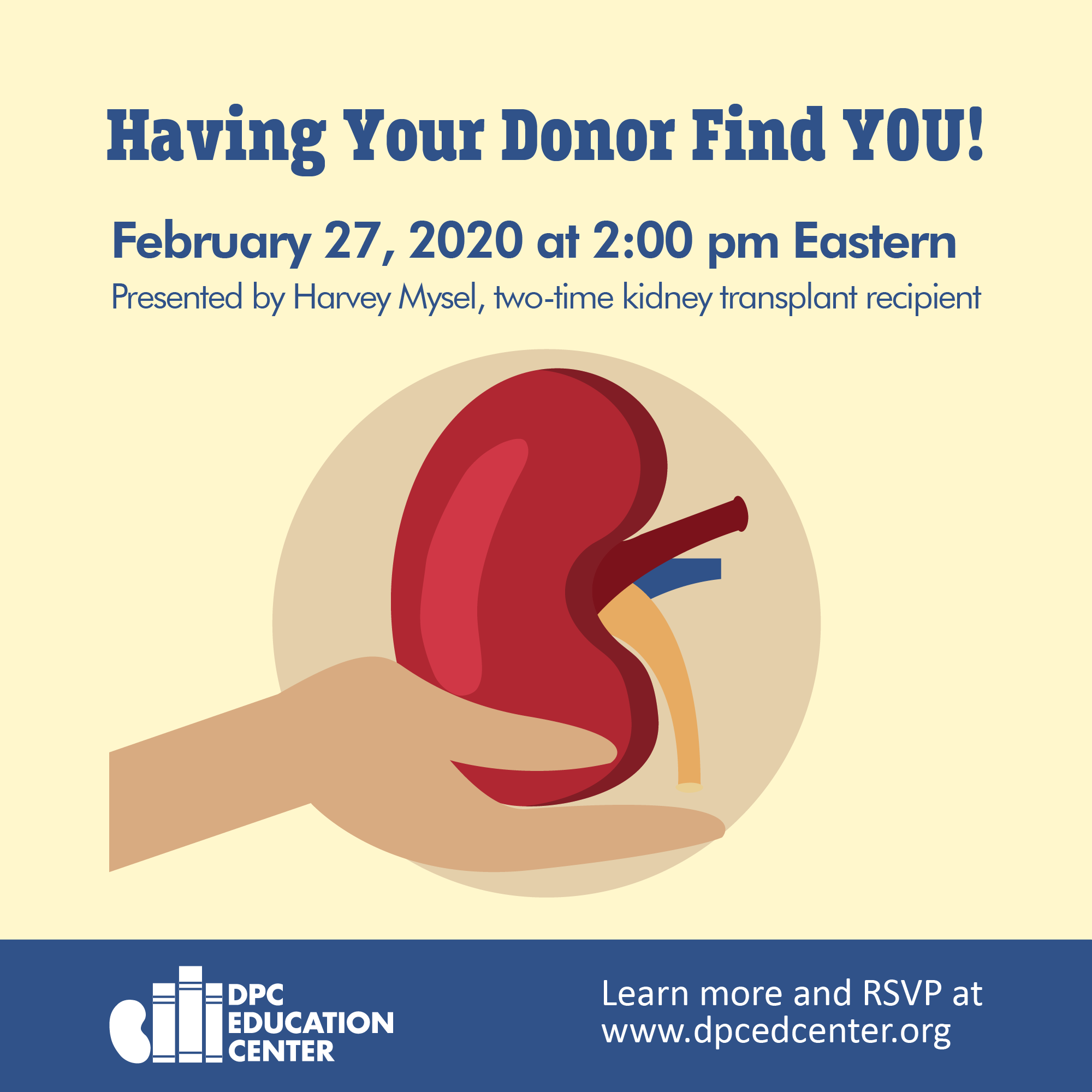
Having Your Donor Find YOU!
During this webinar the following points will be covered: 1) Learn about the benefits of receiving a kidney from a living donor, 2) Learn how to talk to others about kidney donation, 3) You don’t need to “ask” someone to donate, it’s all about “telling your story” and 4) Join us to develop a plan for a successful living kidney transplant experience.
-
-
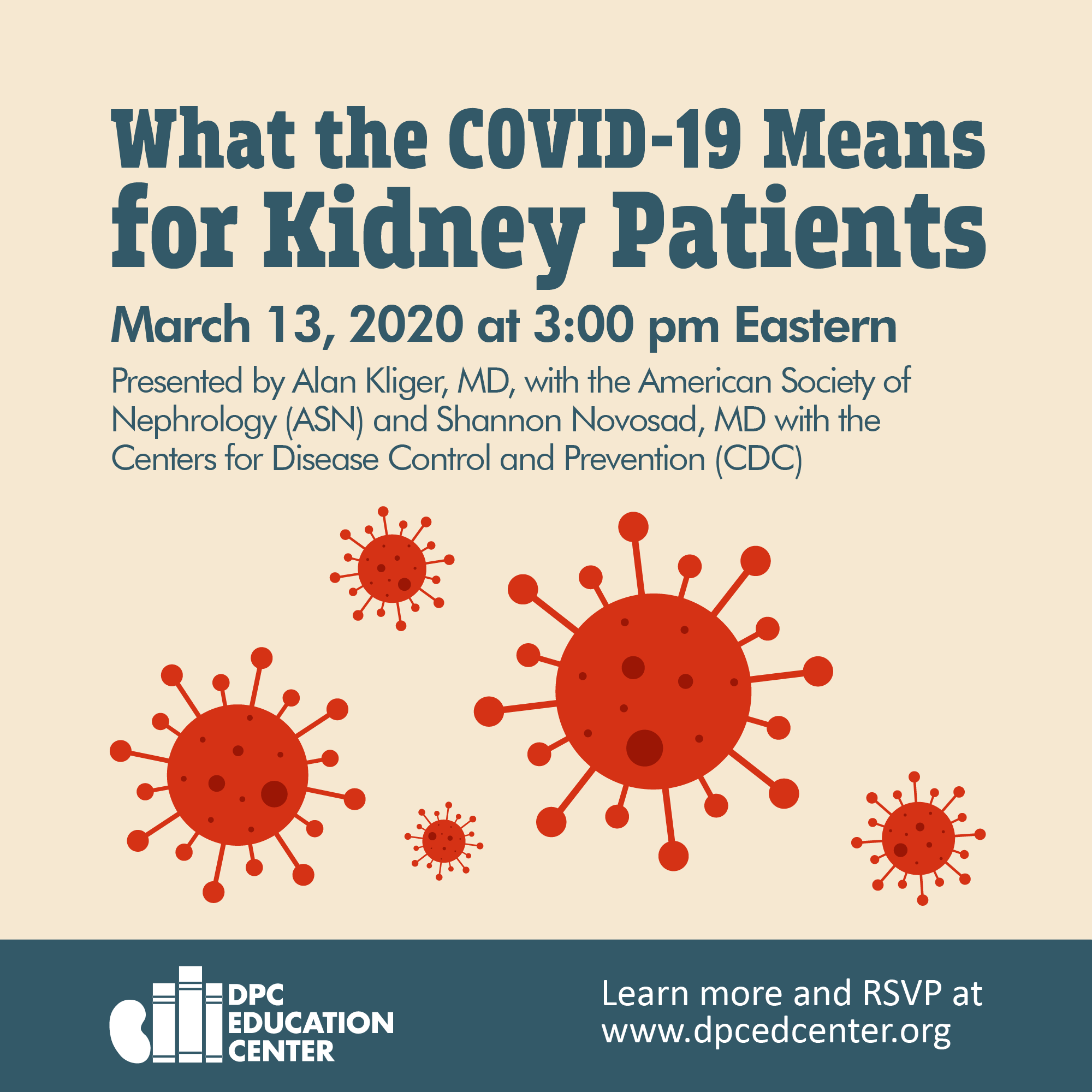
What the COVID-19 Means for Kidney Patients
Please join the DPC Education Center to learn about COVID-19 and what you and your family can do to protect yourselves. You will also learn about the CDC’s guidance for dialysis facilities and how your facility staff is working to prevent the spread of infection.
-
-
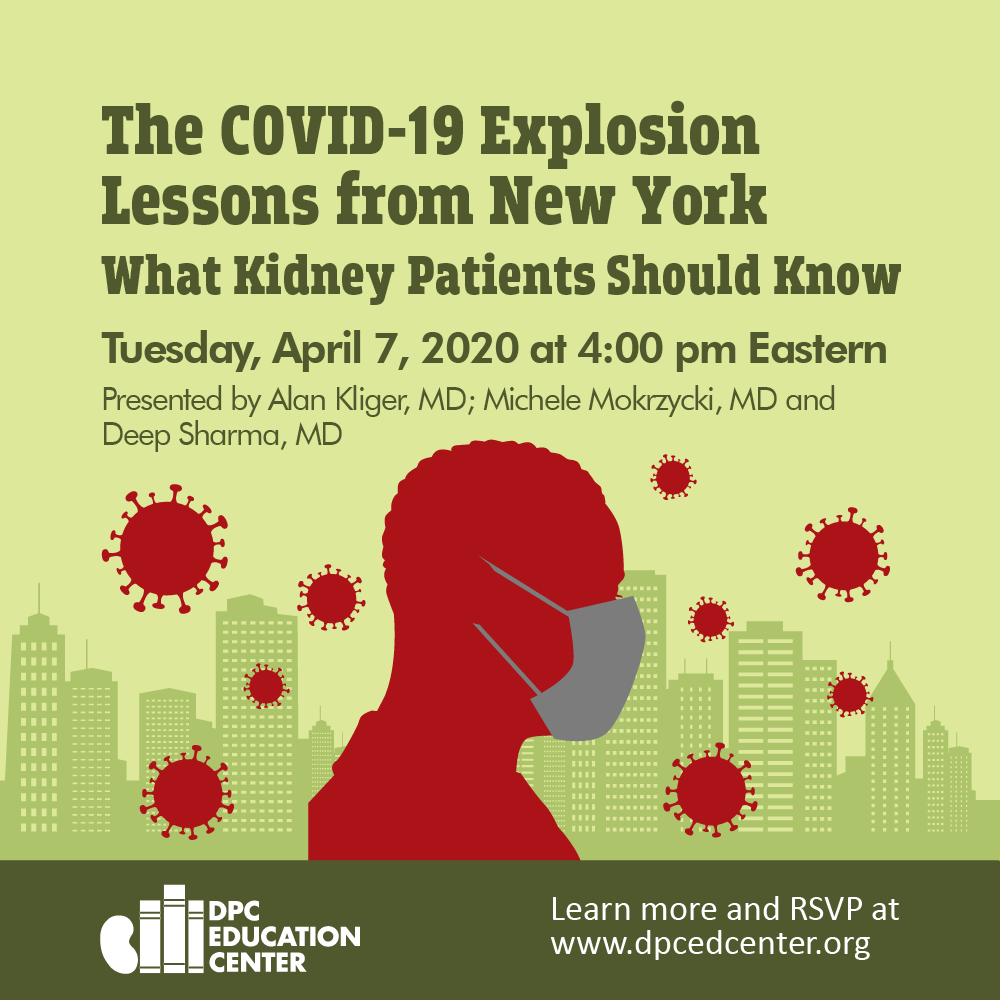
The COVID-19 Explosion—Lessons from New York—What Kidney Patients Should Know
During this webinar you will learn the latest on: 1) What kidney patients need to do (dialysis & transplant), 2) What dialysis facilities are doing and 3) What we can learn from New York’s COVID-19 experience.
-
-
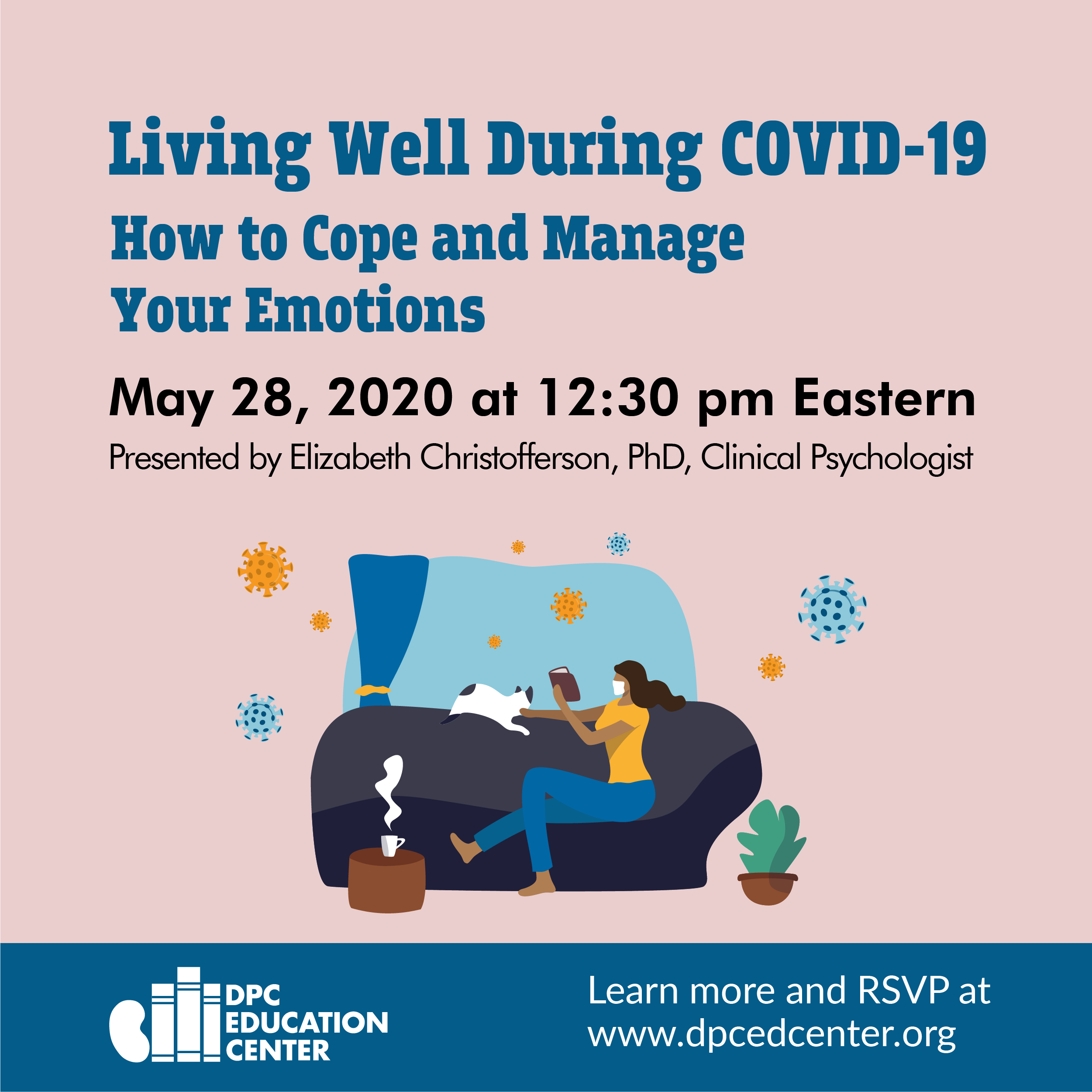
Living Well During COVID-19: How to Cope and Manage Your Emotions
During this webinar, Dr. Christofferson will offer advice on how to deal with feelings of fear, isolation, anxiety and stress during the coronavirus outbreak.
-
-
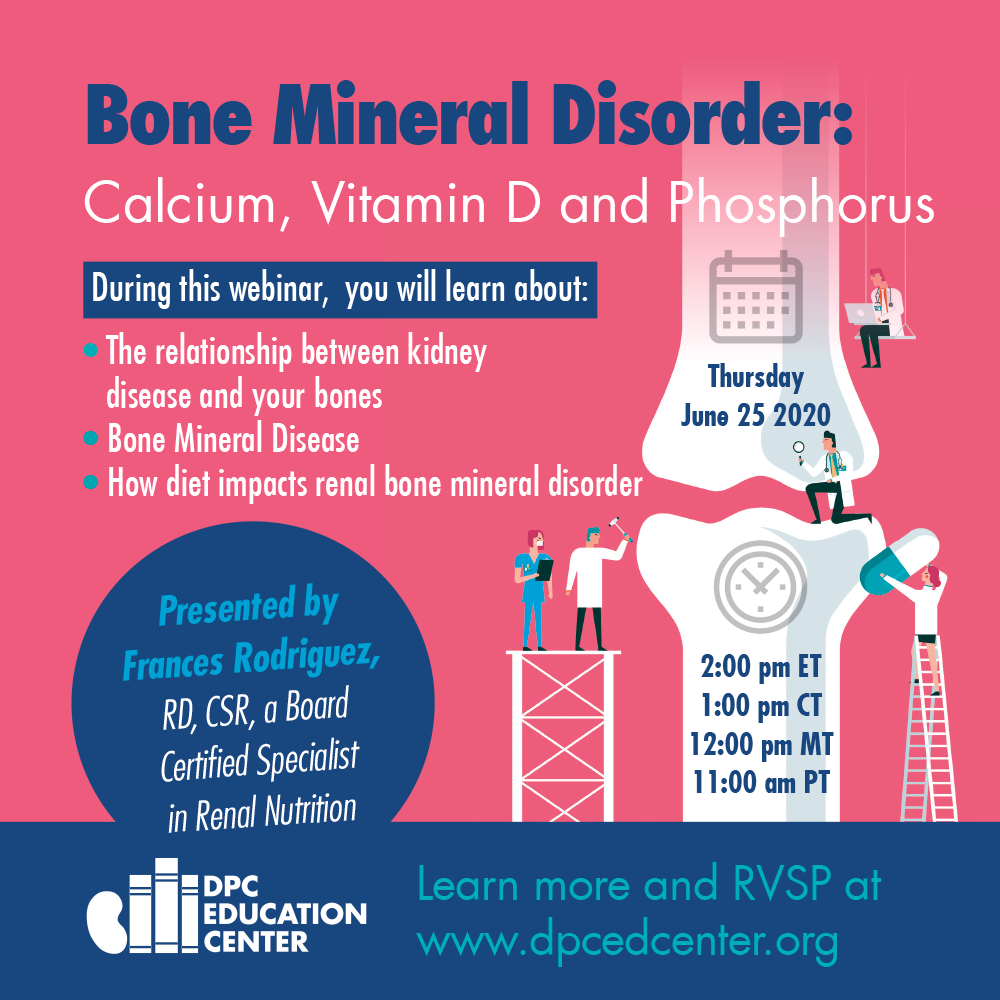
Bone Mineral Disorder: Calcium, Vitamin D and Phosphorus
During this webinar, you will learn about: 1) The relationship between kidney disease and your bones, 2) Bone Mineral Disease and 3) How diet impacts renal bone mineral disorder.
-
-
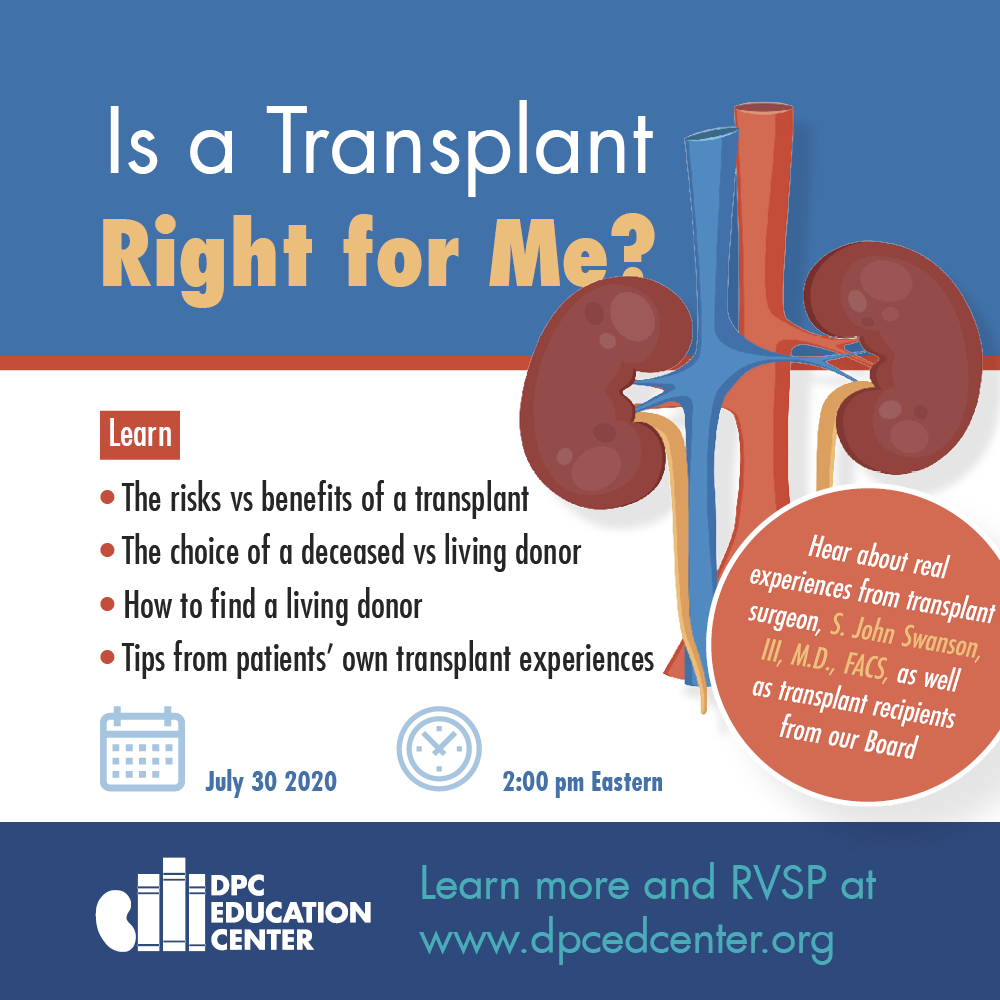
Is a Transplant Right for Me?
During this webinar You will learn about 1) The risks vs benefits of a transplant, 2) The choice of a deceased vs living donor, 3) How to find a living donor, and 4) Tips from patients’ own transplant experiences.
2026-01-08T00:00:00-05:00
10 events found.
